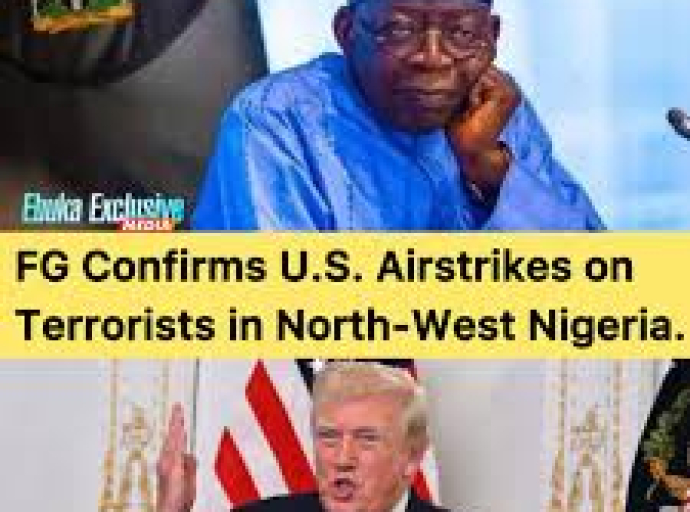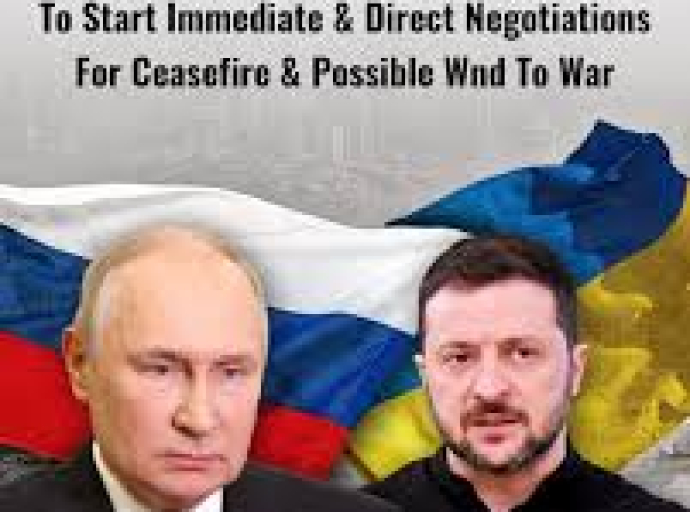That Nigerians are currently in pains over rising cost of living is no more news,the devastating effect of current reforms of the government of President Bola Tinubu,on Nigerians,can not be overstated.It has further depressed the people, into more poverty.The latest price adjustment, by Nigerian National Petroleum Company Limited, means that in the less than 17 months of the current administration, the price of petrol has risen by over 430 per cent from May 29, when it took over the reins of power.
On Wednesday, the Nigerian National Petroleum Company Limited NNPCL) raised the pump price of fuel from N897 per litre to N1, 030 in Abuja; from N855 to N998 in Lagos; N1, 070 in North-East; N1,025 in other South-West states; N1,045 in South-East and N1,075 in South-South. Nigerians,now had to grapple with higher prices while struggling to make ends meet.This had triggered reactions,as the people,are asking the President ,to reverse the increment.Just like most Nigerians,the Nigeria Labour Congress and the Organised Private Sector have also called for the immediate reversal of the hike in the pump prices of petrol, by the NNPCL.
Joe Ajaero of NLC stated, “Even following the logic of market forces, we find it an aberration that a private company (NNPCL) is the one fixing prices and projecting itself as a hegemonic monopoly.
“We challenge the government to go to the drawing board and present us with a blueprint for inclusive economic growth and national development instead of this spasmodic ad holism and palliative policy.
“It needs no stating the fact that the latest wave of increase has grossly altered the calculations of Nigerians once again at a time they were reluctantly coming to terms with their new realities.
“It will further deepen poverty as production capacities dip, more jobs lost with multidimensional negative effects. In light of this, we urge the government to immediately reverse this rate hike as previous increases did not produce any good results. People only got poorer.
“But more fundamentally, the government should be bold enough to tell Nigerians in advance the destination it wants to take the country.”
.
This development comes days after the NNPC decided to terminate its exclusive purchase agreement with Dangote Refinery, giving room for other players downstream to buy products directly from the Dangote Refinery.
The price reportedly jumped to as high as N1,200/litre in some other stations in Abuja. For instance, customers bought petrol from one of the Eterna stations in the city centre at N1,200/litre. Mobil station at Arab junction sold to its customers at N990/litre while all NNPCL stations along with Berger didn’t display its pump price.The increase,has upwardly affect transport prices,One of our correspondents observed that a one-way trip from Lugbe to Wuse in Abuja had increased to N1,000 from N700 previously charged.
Also, transport cost moved as fuel price hit N1,250 per litre in Borno State.
Commercial fuel stations sold at N1,100 per litre with many stations also shut down, which caused artificial scarcity of the commodity in Katsina State. The pump price in Ilorin, Kwara State, as of Wednesday evening at NNPC stations was N1,045. At Orange Global filling station it was N1,300; Rainoil dispensed at N1210, while Total sold it at N1,210.
In Edo, most marketers sold for N1,250 per litre, it was in Delta for between N1,100 and N1,200 per litre and N1,200 to N1,250 per litre in Benue.
In Abia, fuel sold for N1,200 and N1,300, while in Yobe, NNPC sold for N1,098 and others between N1,150 and N1,170 per litre
Most stations in Ondo sold for between N970 and N1000 in the morning but changed to N1,115 in the evening.
The Organised Private Sector also condemned the development. The Director-General of the Manufacturers Association of Nigeria, Segun Ajayi-Kadir, said the hike it would further drive up the cost of production for manufacturers.
He said, “The second increase in one month will send high costs across the value chain for the manufacturer. In terms of the distribution of our products, it means that we are going to pay much higher for it and this will of course impact the prices at which our locally produced items will go.”
The MAN DG said the PMS price hike does not bode well for the average Nigerian whose disposable income shrinks daily, resulting in fewer purchases but faces increasing transportation costs.
“Together with the fact that the disposable income of the average Nigerian has dropped, we are likely to witness a further dip in our sales figures,” Ajayi-Kadir said. “For some small and medium scale enterprises that use diesel in their processes, it is going to be an increase in costs.
“Additionally, workers who make trips are likely to request another raise to allow them to transport themselves to work. Since people will spend more on transport, it reduces the money they spend on other goods, whereas we need more purchases to support more production.”
The MAN DG noted the NNPC’s new PMS price could lead to another low in the business environment, but hoped that over time there would be a moderation in PMS prices as he recommended the Federal Government incentivise petrol cost reduction.
He added, “We already have a huge advantage in Dangote Refinery coming on stream and doing the local supply. It is a welcome development and we are very proud of that as an indigenous producer in our history.
“We are looking forward to how the government would deliberately incentivise the reduction of the cost of petrol. When we subsidised imported petrol, we could say we were subsidising consumption.
“But if arrangements could be made so that Dangote, for instance, would get crude at reduced costs, it could be a way of giving subsidy to Nigerians, but you would be subsidising production, which would be for the overall well-being of Nigerians.
“So, I believe that kind of arrangement, particularly if we intentionally and diligently increase our oil production, would be something that may have to be considered as we continue to find solutions to the rising costs of petroleum products collectively.”
The Director, Centre for Promotion of Private Enterprise, Dr Muda Yusuf, described the latest increase in PMS price as regrettably ill-timed and failed to reckon with the prevailing difficult economic conditions.
“There is always a place for political economy in the interest of the vulnerable segments of society,” Yusuf said. “The Nigerian economy is not ripe for full-blown deregulation and market principles on all fronts.”
Yusuf recommended policy sequencing as a better path, noting it would have been better if the Economic Stabilisation Bill expected to bring relief to the citizens and businesses through its proposed mitigating measures was activated and gained traction before a petrol price hike.
He added, “What the economy needs at this time are measures to ease the current economic and social challenges; not policies that would aggravate them. It is desirable to urgently cut import duties and taxes by a minimum of 25 per cent on all industrial raw materials, 18-seater passenger buses and above and cars of 2,000cc engine capacity and below.”
He also recommended customs duty exchange rate be fixed at a maximum of N1,000/$ to reduce the current prohibitive cost of imports with relevant legislation amended to that effect without prejudice to the fiscal policy measures in the Economic Stabilisation Plan.
Yusuf remarked, “The government must be ready to trade off some revenue in the current situation. There is a need to seek to achieve the maximisation of the welfare function for citizens and the productivity function for businesses. The government should not be too fixated on revenue maximisation.”
Reacting to the latest hike, the National President of the Association of Small Business Owners of Nigeria, Dr Femi Egbesola, said the association was troubled by the lack of prior notice.
He said, “While we understand the complex factors that can influence fuel prices, such as global oil market dynamics and exchange rate fluctuations, we are troubled by the lack of prior notice and clear explanations provided by the government and the NNPCL regarding this development.
“The timing of this price hike is particularly concerning, as it has the potential to further exacerbate the impact on businesses and consumers, especially the vulnerable segments of the population and those on fixed incomes, who are still adjusting to the recent increase in the national minimum wage.”
He noted that the current administration should realise that a steep price hike was bound to trigger widespread price increases, potentially reversing the recent easing in inflation.
He posited, “The immediate impact of the hike in petrol price on businesses will be severe, with fuel prices affecting supply and logistics, power generation, transportation, and factory operations.
“The cost of doing business will skyrocket, prices of goods will rise, and some firms may shut down due to low demand in the face of weakening consumer purchasing power. Of course, this will be followed by job losses.”
In a similar vein, the National Vice President, Nigerian Association of Small-Scale Industrialists, Segun Kuti-George, said it was shocking to see pump prices go up again.
“What we’re expecting, to be honest, is a possible drop in the price of PMS due to the expectation that PMS will now be sourcing from Dangote, who would be receiving crude in naira from NNPC. It was, therefore, a surprise to see prices going up again,” he said.
“Well, there is nothing that the government or people will not have explanations for, but I believe that courtesy demands either NNPC as an agent of the government or the government itself should take the time to explain these things to the people. They should give us information on what’s about to happen so that we can have a correct understanding and prepare ourselves for it, but you won’t hear anything.
“All you see is an upward review in prices, and they leave you guessing what exactly is happening. For instance, the information I gathered was that NNPC had been acting as a go-between for Dangote and marketers and paying some amount of subsidy, which accounts for the price difference between what NNPC sells and what other marketers sell. Now, NNPC has withdrawn, and it’s like everyone has to buy and sell what they buy, whether they are buying locally or importing.
“Even if that’s the case, someone should have taken the time to explain it to us, so we have a clear understanding and aren’t just guessing. Of course, this increase translates to higher costs for micro, small, and medium enterprises. It leads to an increase in prices, reduced sales, reduced profits, and ultimately, it can lead to job losses and increased unemployment. Well, we can only hope that this action will bring an end to sporadic fuel price increases and engender some level of stability.”
Additionally, an economist and investment specialist, Vincent Nwani, noted the frequency of fuel price increases this year, emphasizing its nationwide repercussion.
“This is the third time fuel prices have increased this year, which I believe is a nationwide problem. In some parts of the country, prices are above N1,500. Inflation will rise, not just the one reported by the Central Bank of Nigeria.
“Costs continue to climb, and I’m uncertain about the figures from the Nigeria Bureau of Statistics. Electricity costs are also unfavourable, and recently, it was announced that the price of driving licenses will increase.”
Dangote denies price hike
Contrary to reports that the new petrol price hike must have been triggered by an increase in the ex-depot price of the product at the Dangote refinery, officials of the refinery have denied the claim.
There were online reports on Wednesday indicating that Dangote refinery had raised the price of petrol to N977/litre, prompting NNPC to also push up its rate.
However, senior officials at Dangote refinery described the report as “fake news.”
“The NNPC should be in a position to tell you why it increased the price of petrol, go and ask them. I don’t know where you got N977 from,” an official told our correspondent.
With the new price hike, petroleum marketers said they would need more money to top up their existing orders with the NNPC.
The President of the Petroleum Retail Outlet Owners Association of Nigeria, Billy Gilly-Harry, told one of our correspondents on Wednesday that marketers would only receive the products they had bidded for after completing the differential to make up for the new price.
“We have been communicated that this is the new price the NNPC will be selling to us. The factors as to why the price change has not been told. But don’t forget that we are entering into a fully deregulated segment of the business. It means quite a lot to us because we need to go and look for more money to add to the product we have already paid for. That is why we are crying. The challenges we have as retailers are more than meets the eye. We also don’t have consistent sales because the purchasing power of the masses has been eroded. We are hoping that things will change for the future,” he said.Meanwhile,the Federal Government has said it is not responsible for the hike in the pump price of petrol.
The National Orientation, Mohammed Idris, said the government should not be held responsible for the latest hike in petrol price.
The minister explained that the NNPCL made the decision in response to prevailing circumstances in the energy industry, emphasising that it did not act on any instruction from the federal government, as the government can no longer fix prices of petroleum products, in line with the provisions of the Petroleum Industry Act (PIA).
He said with the subsidy regime ending since May 2023, the NNPCL had only been paying differential to keep the price within the range it had been, but the company said it could no longer absorb the losses.The minister urged Nigerians to continue to show understanding with the NNPCL and the government, assuring that in the long run the prices would ultimately come down.
He said the government would continue to invest the savings from removal of subsidy to improve other critical sectors like healthcare, education, infrastructure, and security.
He added that the initial investments of the government in CNG would also ameliorate the impact even as more operators invest.















